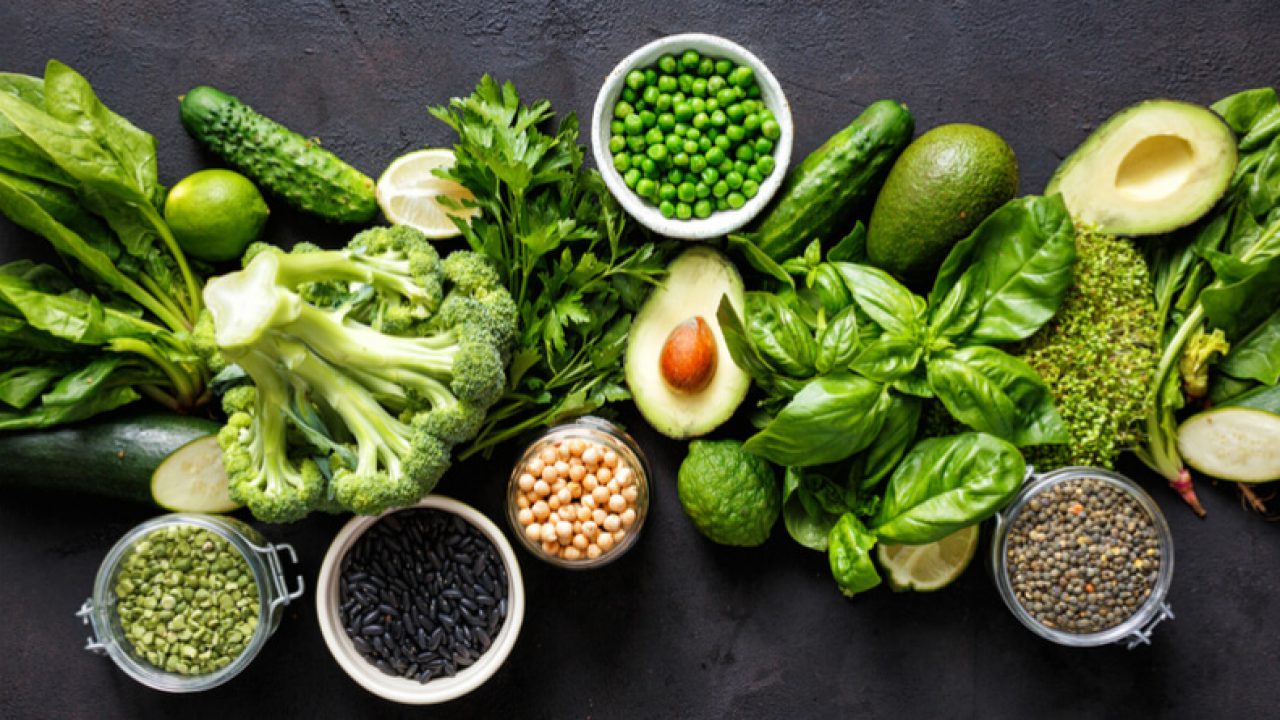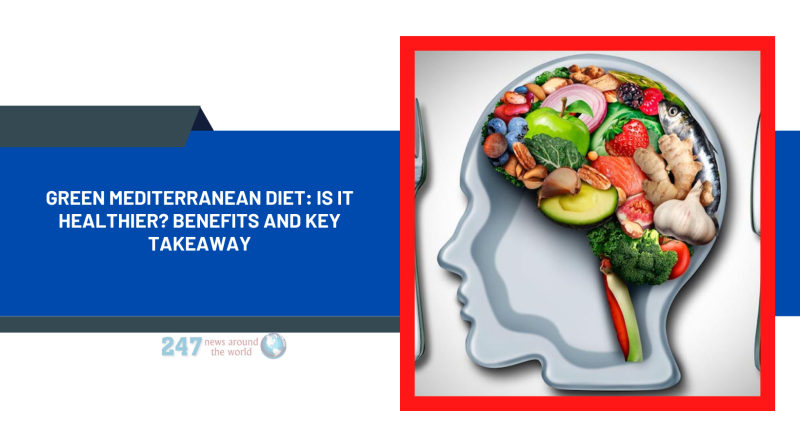Find out “Green Mediterranean Diet?” If you’re looking for a way to improve your health, the Mediterranean diet has been touted as one of the best eating patterns out there. But with the introduction of a new “green” Mediterranean diet that adds Mankai duckweed, walnuts, and green tea to the mix, is it really any healthier? Read on to find out what research says about this modified version of the traditional Mediterranean diet.
The so-called “Green Mediterranean Diet” is not a new fad diet or a weight loss gimmick. It is, instead, a way of eating that is based on the traditional cuisines of the countries surrounding the Mediterranean Sea.

The Green Mediterranean Diet has been shown to have many health benefits, including reducing the risk of heart disease, stroke, and cancer. This way of eating can also help to lower cholesterol and blood pressure levels, and improve cognitive function.
What is the Mediterranean Diet?
The Mediterranean diet is a dietary pattern that is inspired by the eating habits of countries in the Mediterranean region, including Greece, Italy, Spain, and Morocco. The diet typically includes a high intake of fruits, vegetables, olive oil, fish, and nuts, and a moderate intake of poultry, dairy, and red wine. The diet has been associated with a number of health benefits, including a lower risk of heart disease and stroke.
Is The Green Mediterranean Diet Healthier?
Melissa Mitri, MS, RD, a Connecticut-based Nutrition Writer and Owner of Melissa Mitri Nutrition, told Verywell that the green Mediterranean diet “has become increasingly popular due to the benefits seen from both Mediterranean-style and plant-forward ways of eating.”
Basically, Mitri said that the Green version of the diet is “taking all of the essential tenets of a healthy Mediterranean diet, with an emphasis on plant foods.”
Nutrition research has long shown that eating more nutrient-dense foods like fruits, vegetables, beans, nuts, whole grains, and seeds offers health benefits.
On top of emphasizing good-for-you food groups, the green Mediterranean diet also recommends that people eat a specific quantity of three superfoods (Mankai, green tea, and walnuts) to get, at minimum, the nutrients provided by these nutritional powerhouses.
What Does the Green Mediterranean Diet Entail?
The Green Mediterranean Diet is based on the traditional Mediterranean diet, but with a few key differences. The main difference is the addition of more greens and plants to the diet. This means eating more leafy green vegetables, legumes, and fruits. The diet also includes healthy fats from olive oil and nuts, as well as fish and poultry.
Can The Green Mediterranean Diet Help Me Lose Weight?
In 2020, researchers did a trial where participants were assigned to either follow generally healthy dietary guidelines, the Mediterranean diet, or the green Mediterranean diet. All the participants also took part in physical activity during the study. Over 18 months, the researchers looked at how much abdominal fat (visceral fat) the participants lost.
The people who followed the green Mediterranean diet had double the visceral fat loss than the other participants. Specifically, the people who followed the green version of the diet reduced their visceral fat by 14%—more than twice as much as the people following the classic Mediterranean diet (6%).
Other research data has shown that a higher intake of Mankai, green tea, and walnut and a lower intake of red and processed meat is linked to protective benefits for brain health. The diet may also help reduce fat in the liver, which is closely linked with diabetes risk.
Is the Green Mediterranean Right for You?
The green Mediterranean diet is not for everyone. Even people who may benefit from it can still have challenges making it happen. For example, Garone pointed out that some people will find it hard to find Mankai duckweed, “which can be cost-prohibitive and difficult to find.”
Whether the green Mediterranean diet will work for someone also depends on their dietary needs and cultural dietary practices (the diet does not include foods that are traditional to cultures beyond those surrounding the Mediterranean Sea).
That said, it might be worth exploring the diet to find out if there are ways you could adapt it to meet your needs and preferences. According to Mitri, “many aspects of it can be applied across all cultures, such as the encouragement of more fruits, veggies, whole grains, nuts, and tea.”
Easing Into the Green Mediterranean Diet
If you’re new to a green Mediterranean diet, Garone said it’s best to ease into it since drastic changes are not only difficult to make, but rarely sustainable in the long-term.
You don’t have to make a complete shift to a new way of eating. If you want to try, Garone suggested that incorporating a new element of the green Mediterranean diet every week.
A small step you can take as a starting point is swapping animal proteins for plant-based ones—for example, cooking up black bean burgers instead of beef or making lentil stew for dinner on a chilly evening instead of one with sausage.
Your beverage choices are another place to make some greener swaps—literally.
“If you’re an afternoon coffee drinker, you might try green tea a few days a week instead,” Garone said.
Benefits of the Green Mediterranean Diet
The Green Mediterranean Diet has many benefits that make it a healthier option than other diets. One benefit is that it is based on plant-based foods, which are known to be healthier than animal-based foods. Another benefit is that the Green Mediterranean Diet includes plenty of healthy fats, which are essential for good health. Additionally, the Green Mediterranean Diet is high in fiber and low in sugar, both of which are important for preventing chronic diseases.
The 3 Foods Added to the Green Mediterranean Diet
There are three more daily requirements for people following the green Mediterranean diet:
- Consuming 100 grams (about 3.5 ounces) of Mankai duckweed (a newly cultivated, tiny aquatic vegetable)
- Drinking 3–4 cups of green tea
- Eating 1 ounce of walnuts
These items were selected to be part of the diet because of the unique health benefits they offer:
- Mankai duckweed has all essential amino acids, iron, vitamin B12, dietary fibers, omega-3s, antioxidants, and plenty of other minerals, vitamins, and essential nutrients.2 It has a neutral taste and can easily be added to smoothies, sauces, and other recipes.
- Green tea is an excellent dietary source of an important plant compound called flavan-3-ols. Recently, the Academy of Nutrition and Dietetics stated that consuming between 400 and 600 milligrams of flavan-3-ols a day (which you’ll get from drinking 2 cups of green tea) is linked to heart health benefits.3
- Walnuts are the only tree nut that is very high in plant-based ALA omega-3 fatty acids. The nuts are also a source of plant-based proteins, fiber, micronutrients, and antioxidants. Research has also shown that adding 1 ounce (28.35 g) of walnuts to the diet of people who do not regularly eat nuts can improve their diet quality and intake of under-consumed nutrients.
Key Takeaways
The Green Mediterranean Diet is a diet that emphasizes plant-based foods, healthy fats, and seafood.
There is some evidence to suggest that the Green Mediterranean Diet may be healthier than other diets. For example, one study found that the Green Mediterranean Diet improved markers of metabolic health better than a low-fat diet did.
However, it’s important to remember that no one diet is perfect for everyone and that there isn’t definitive evidence that the Green Mediterranean Diet is definitively healthier than any other diet. Ultimately, the best diet is the one that works best for you and that you can stick with long-term.
Recipes
There are many variations of the Mediterranean diet, but the general principles are to eat lots of fruits, vegetables, whole grains, legumes, and olive oil; to limit red meat, saturated fats, and sugar; and to enjoy moderate amounts of fish, poultry, wine, and nuts.
The question of whether the Mediterranean diet is healthier than other diets has been studied extensively. The verdict is that it probably is—the largest review of studies on this topic found that people who followed a Mediterranean diet had a 30% lower risk of heart disease and stroke than those who followed a “Western” diet.
But what makes the Mediterranean diet so special? One key factor is its emphasis on plant-based foods. A recent study found that people who ate a mostly plant-based diet had a lower risk of heart disease than those who ate a mostly animal-based diet. This may be because plant-based foods are generally lower in saturated fat and cholesterol than animal-based foods. They’re also higher in fiber, which can help reduce cholesterol levels.
Another important component of the Mediterranean diet is olive oil. Olive oil is rich in monounsaturated fats, which have been shown to protect against heart disease. It’s also a good source of antioxidants, which can help protect cells from damage.
If you’re interested in trying the Mediterranean diet, there are plenty of delicious recipes to choose from. Fruits and vegetables are a key part of the diet, so try experimenting with salads, grilled vegetables, and fresh fruit. You can also incorporate whole grains like quinoa and bulgur into your meals. Legumes like chickpeas and lentils are packed with protein and fiber and make a great addition to soups, stews, and other dishes. And don’t forget about olive oil—it’s a healthy cooking fat that adds flavor to just about anything!
Alternatives to the Green Mediterranean Diet
When it comes to healthy eating, there is no one-size-fits-all approach. The Green Mediterranean Diet is a great option for many people, but it may not be the best choice for everyone. Here are some alternative diets that you may want to consider:
The Paleo Diet: The Paleo Diet focuses on eating like our ancestors did – primarily meats, vegetables, and fruits. This diet is rich in protein and fiber, and has been shown to promote weight loss and improved blood sugar control.
The Keto Diet: The Keto Diet is a high-fat, low-carbohydrate diet that has been shown to promote weight loss and improved blood sugar control. This diet requires careful planning and monitoring, as it can be difficult to get enough nutrients on a high-fat diet.
The Vegan Diet: The Vegan Diet is a plant-based diet that avoids all animal products, including meat, dairy, and eggs. This diet can be healthy for many people, but it’s important to make sure you’re getting enough vitamins and minerals from plant-based foods.
No matter which diet you choose, the most important thing is to make sure it works for you. Talk to your doctor or a registered dietitian about which dietary approach may be right for you.
Final Note
In conclusion, the Green Mediterranean Diet is a great way to get healthy and eat delicious meals at the same time. It emphasizes fresh vegetables, fruit, legumes and whole grains while minimizing animal products and processed foods. This diet has been proven to reduce inflammation, improve cardiovascular health, lower cholesterol levels and even lead to weight loss. Overall it’s an incredibly sustainable way of eating that will help you live a longer, healthier life without sacrificing flavor or variety.






